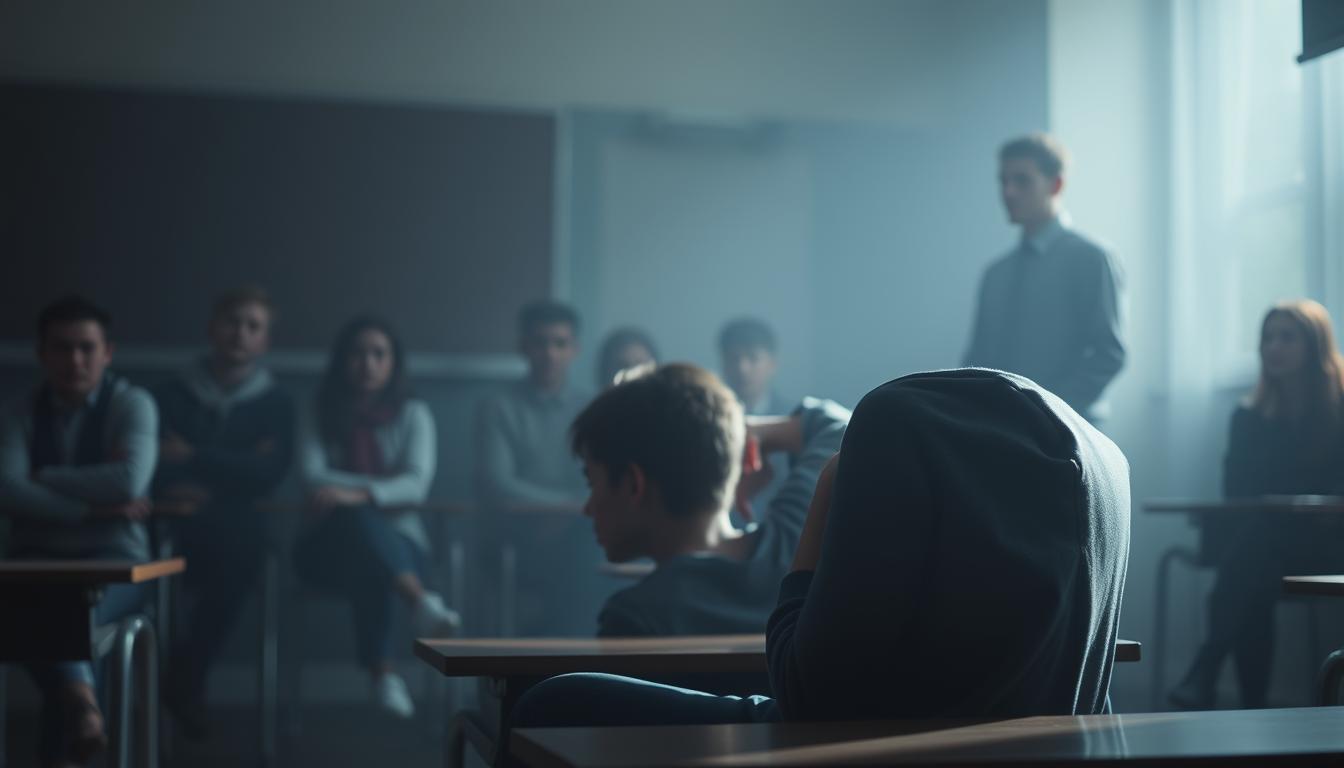Social workers are key in today’s schools. They help students succeed in school, improve their mental health, and feel better overall. These experts connect students, families, and schools, tackling many challenges that might hold students back.
School social workers know how to meet students’ needs. They help with school problems, emotional issues, family issues, and more. They work hard to make sure every student gets the help they need to do well in school and life.
Key Takeaways
- School social workers play a critical role in supporting students’ academic, social-emotional, and mental health needs.
- They serve as a bridge between students, families, and educational institutions, addressing a wide range of challenges.
- Social workers employ a collaborative approach, working closely with teachers, administrators, and community resources to ensure student success.
- They provide crisis intervention, individual and group counseling, and resource connection to help students overcome barriers to learning.
- The presence of skilled social workers in schools can significantly improve student outcomes and overall well-being.
Understanding the Role of School Social Workers in Education
Social workers are key in schools, helping students both academically and personally. They act as school-based mental health experts. They help meet the varied needs of students, giving them the tools to do well.
Core Responsibilities and Daily Activities
School social workers do many things to help students, teachers, and families. They handle crisis intervention, counseling, family support, and finding resources. Daily, they help with school problems, offer mental health services, and help with special education. They also connect families with educational support services.
Professional Qualifications and Training
To be a school social worker, you need a master’s degree in social work (MSW). You also need to meet your state’s licensing rules. This training prepares them for the challenges of social work in schools.
Collaborative Partnerships with Teachers and Staff
Good school social workers build strong ties with teachers and staff. These partnerships help them understand students’ needs better. They then use this info to help students grow in all areas.
Impact of Social Workers on Student Mental Health and Well-being
School social workers are key in helping students with their mental health. They work hard to make a safe and caring place for learning. This helps students grow strong and learn important life skills.
They focus on finding and helping with mental health problems early. Using special tools and working with teachers and families, they spot issues like anxiety and depression. Then, they create plans to help each student feel better.
They also lead programs that teach students about feelings and relationships. These programs help students understand themselves and others better. This way, they can handle school and life’s challenges better.
| Key Strategies Employed by School Social Workers | Impact on Student Mental Health and Well-being |
|---|---|
|
|
School social workers are crucial in making schools safe and supportive. Their work in social-emotional learning helps students grow and succeed. They play a big role in helping students thrive.
How School Social Workers Support Academic Success
School social workers are key in helping students do well in school. They use many strategies to meet the needs of all students. This helps create a place where learning and growing are easy.
Crisis Intervention and Prevention Strategies
When students hit tough times, school social workers step in. They work with teachers and others to prevent problems. This way, they help students stay focused on their studies.
Individual and Group Counseling Services
School social workers offer counseling to students. They help with emotional, behavioral, and social issues. This helps students build strength and overcome challenges to their academic support.
These efforts help students do well in school and in life. It’s all about making sure they have the support they need.
Resource Connection and Family Engagement
School social workers connect families with important resources. This includes help with mental health, food, and housing. They make sure students get the support they need to succeed.
By working in many ways, school social workers help students reach their goals. They focus on the whole child, making sure they can succeed in and out of school.

Breaking Down Barriers: Social Workers as Student Advocates
School social workers are key advocates for students. They work hard to remove barriers that stop students from succeeding. These professionals aim to make sure all students get the help they need to do well.
At the heart of their work, they tackle big issues that block fair education. They help remove barriers that hurt students from low-income families, racial minorities, or with special needs. They work to make schools more welcoming and supportive for everyone.
School social workers are strong supporters of student advocacy. They team up with students, families, and teachers to meet every child’s needs. They help students find important services and give them the power to beat their challenges. Their work helps create a fair and caring place for learning.

School social workers are vital in helping students succeed. They work hard to make sure every student has a chance to do well. Their commitment to fairness and their skill in dealing with complex issues make them essential in schools.
Conclusion
In this article, we’ve looked at how school social workers help students grow. They play a key role in students’ academic, emotional, and social development. These dedicated professionals make a big difference in young lives, helping them face challenges and succeed.
They do a lot, like helping in crises and working with students and families. School social workers also help connect families with important support. This shows how much they impact the school community.
Thinking about school social workers, it’s clear they are very important. They are the behind-the-scenes heroes who work hard to help students. By supporting them, we help students and make schools better for everyone.
FAQ
What are the core responsibilities and daily activities of school social workers?
What qualifications and training are required to become a school social worker?
How do school social workers support students’ mental health and well-being?
What strategies do school social workers use to support students’ academic success?
How do school social workers advocate for students and promote equity in education?




